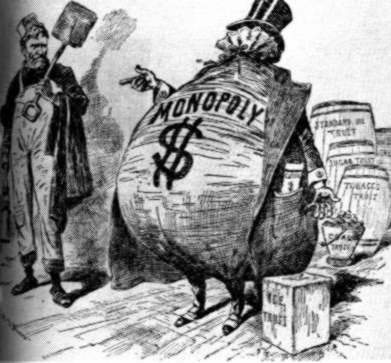That's the question that I end up asking myself every time I log onto Twitter. No, no, that's a lie. The question I ask myself when I log onto Twitter, literally, is "why can't I use #newtwitter?" It's really frustrating. I would share so much more if I could embed photos and videos into my Twitter newsfeed. I do it on my Facebook and blogs all the time, why won't Twitter let me?
Ahem
, now that I've got that out of my system, we can get back to the question at hand: how much klout do you exercise on Twitter? For those of you wondering why I'm spelling "clout" with a k, its because there's this company called
Klout, which measures one's influence on Twitter.
I created an account with Klout about a month ago, but I hadn't checked it until recently. But today I was reading an article on
Ad Age, reporting how The Palms Hotel and Casino in Las Vegas will provide highly-ranking influencers with access to outstanding amenities, in the hopes that they tweet their positive experience to their followers.
What an interesting concept, I thought. But I remained skeptical still. So I logged into Klout, and saw my influencer score was still at 17 presumably 100. Lousy right? When I refreshed my score, it dropped to an even lousier 5.
What the heck! Investigating how I could have dropped so much, I accessed my profile and looked at some of my stats:
According to Klout, @ssunmonu has a low level of influence.
Ok, I get it. I haven't been using Twitter regularly for some time. Every takes time off.
Then Klout proceeds to break my score down, and the results were surprising. It says that my "true reach" is N/A, yet it says that I have a "strong true reach". Now I'm not a genius or anything but that makes absolutely no sense. Moving on.
Next up, my amplification. On my profile it says that I have an amplification score of 3, which apparently indicates that my "content is almost guaranteed to be highly amplified". Fine, not too shabby. Except that right above it says 0 total retweets, 0 @ mention counts, 0 unique messages retweeted and 0 in/outboud message ratio. Once again, I'm not sure how they're calculating these scores but it doesn't seem right to me. I don't have many retweets, but no one
hate me that much.
Lastly, in the network section, I was hit with the "@ssunmonu does not engage with very many influencers". Now that I would agree with. I try to hold myself to the "Rule of 5", where I must interact with 5 people everyday, except I've never actually done it. Maybe I should call it the "Rule of Fail".
So what does all this tell us? Well for one, that I need to step up my use and engagement on Twitter. A Klout score of 5 is simply unacceptable. I tweet things that are ongoing with me, news, videos, etc., but I need to start engaging with influencers.
Secondly, this tells us that while the concept of measuring one's influence across social networks is a novel one, it has yet to be fully carried out yet, and to rely on one company's view of your influence sounds faulty. From the Ad Age article,
"Klout is like having just one credit monitoring company. You might do spectacularly good or have a terrible ranking but the validity of the ranking system itself has yet to be proven until you have another service to compare it to."
True, although there is another competitor in
Empire Avenue, which is actually a social network where users can buy, trade and sell virtual shares in each other. Your stock price goes up from your involvement across various social networks like Empire Avenue, Twitter, Facebook, blogs, as well as RSS feeds.
This is a more realistic approach to measuring influence, and while not perfect, is better than Klout in my opinion. I know that I might not be very influential on Twitter, but I'm fairly influential on Facebook, where I have over 600 friends and try to engage with people daily. I know I'm fairly influential when it comes to my blog as well. This one, not so much. But
SunofSam gets about 50 views a day when I post, which is pretty big for me.
This is not to say that Klout isn't a good idea, and that in the future it might play a more important role in business, but it still has quite a ways to go. Meanwhile, I'll keep at that Twitter thing. I've been stuck around 60 followers for a while now; I need to engage more.










